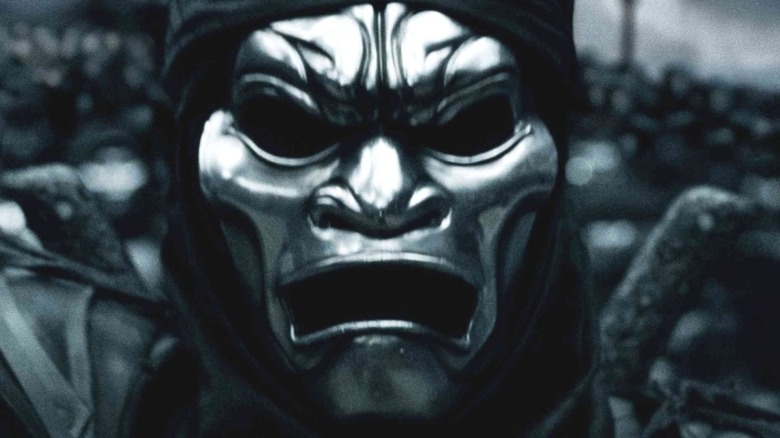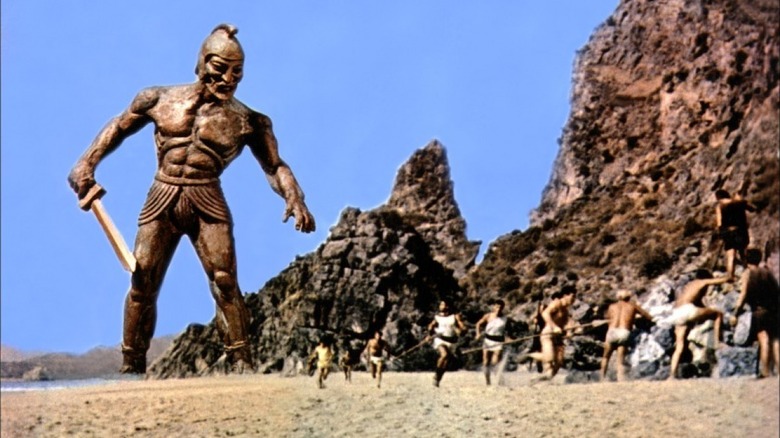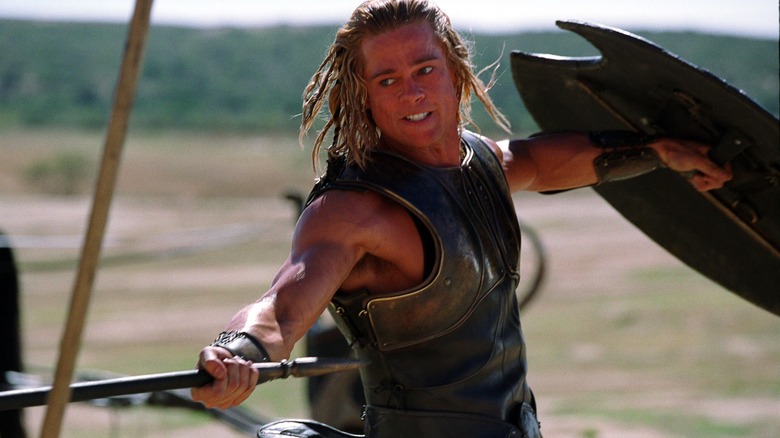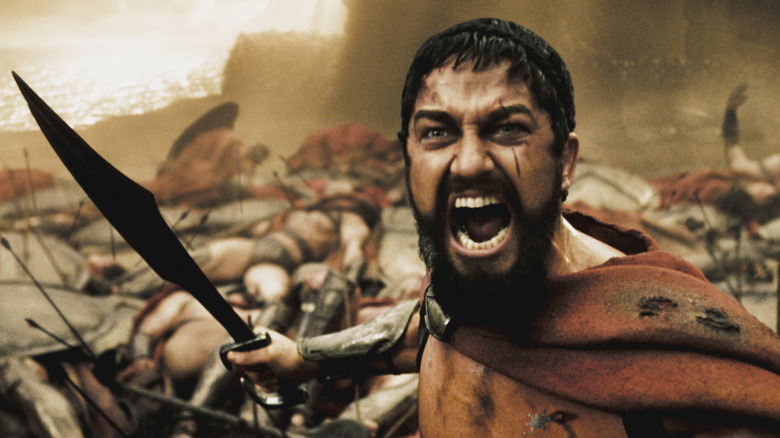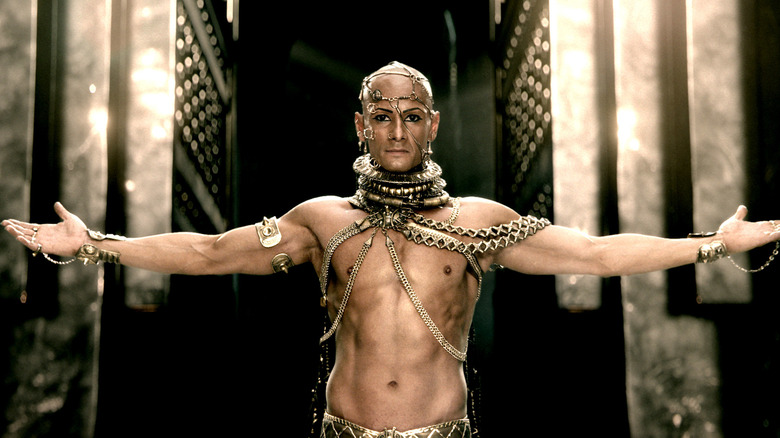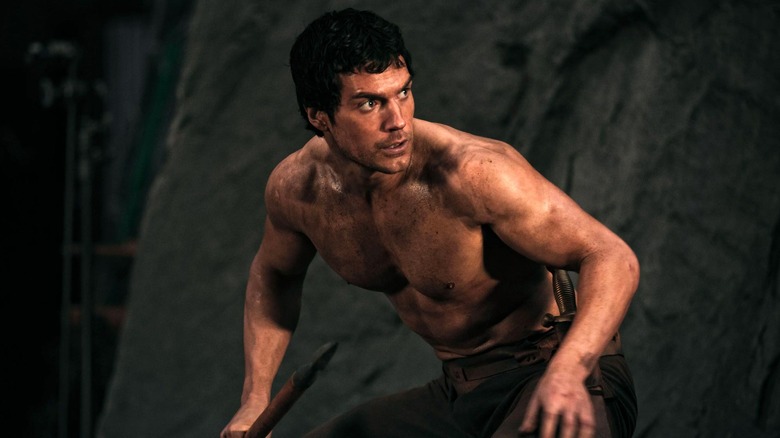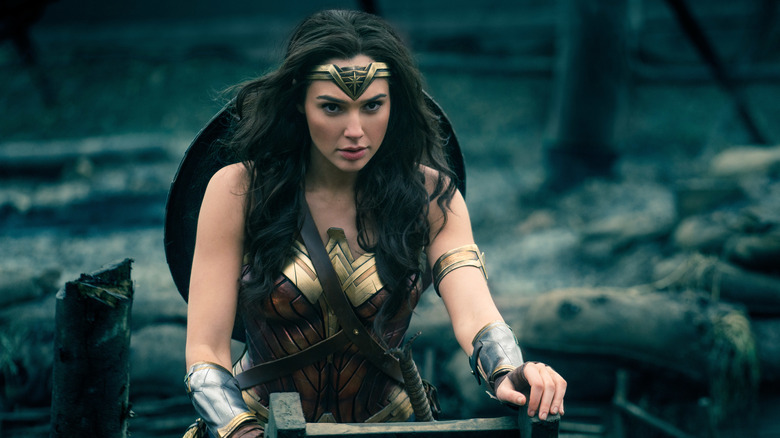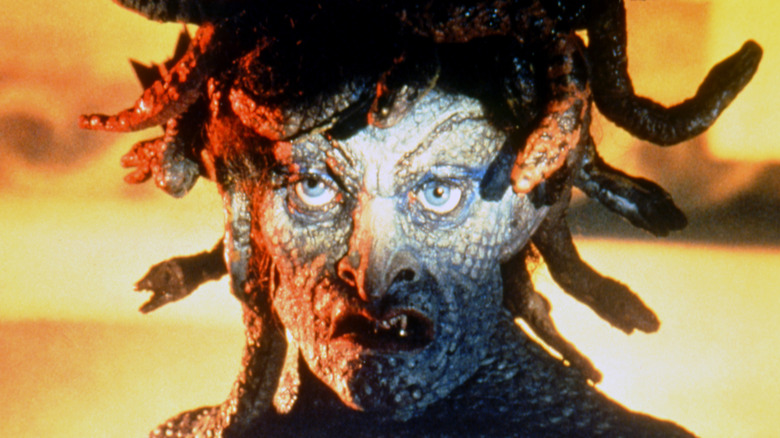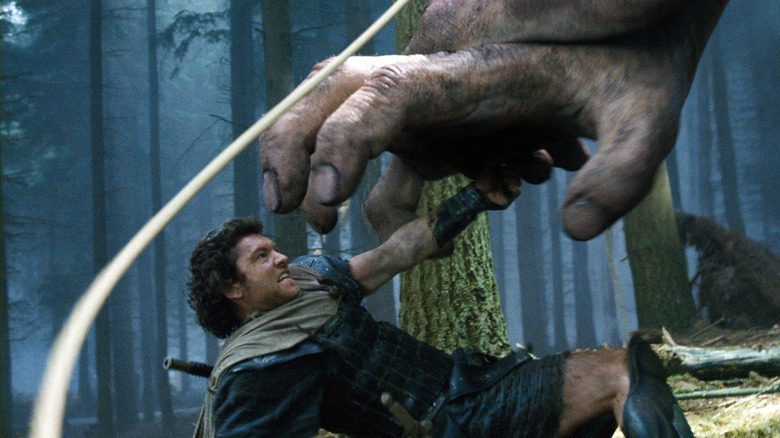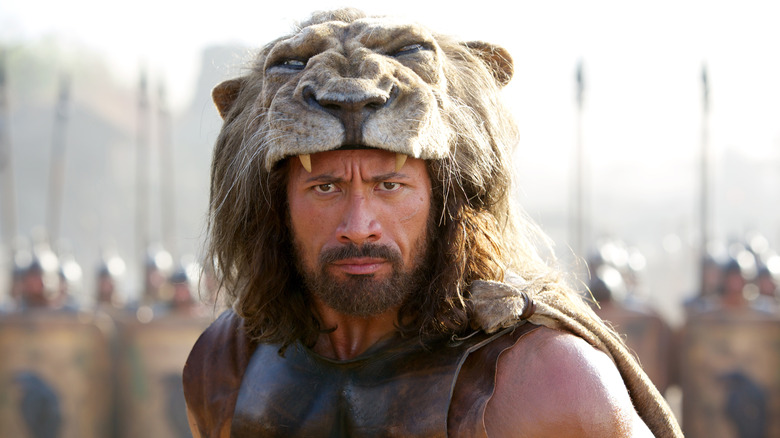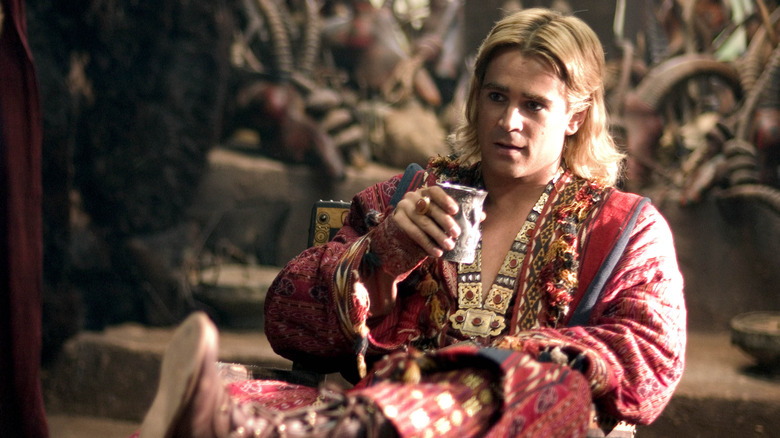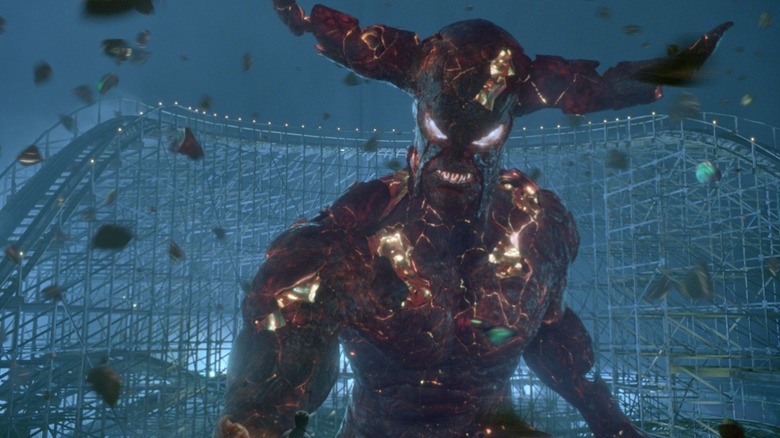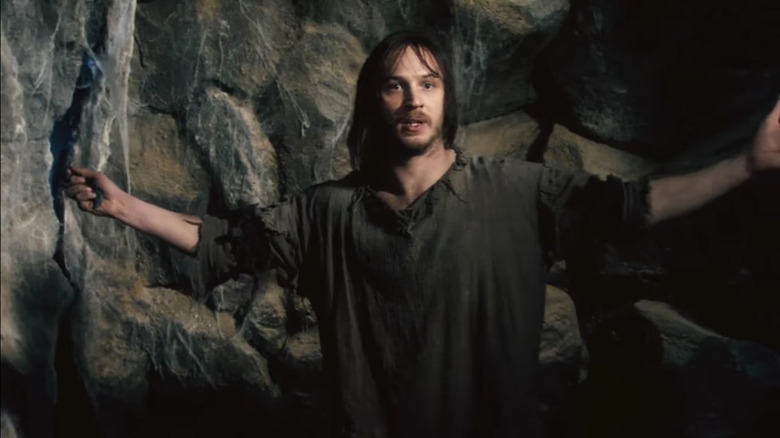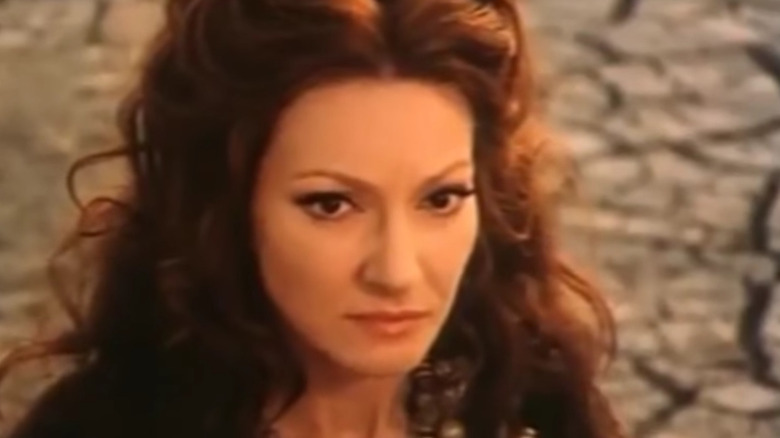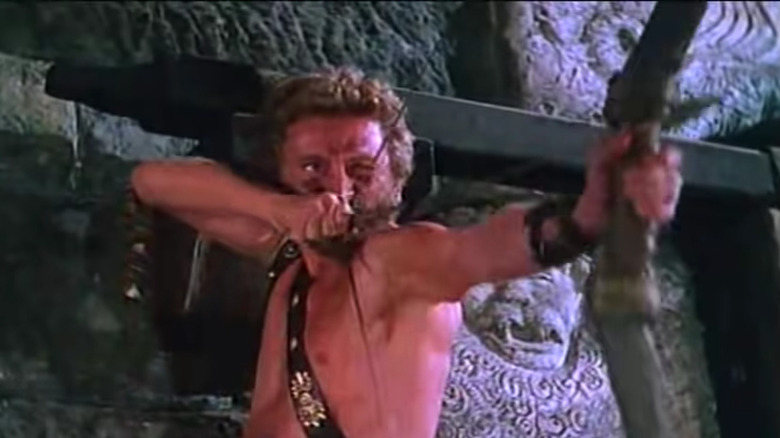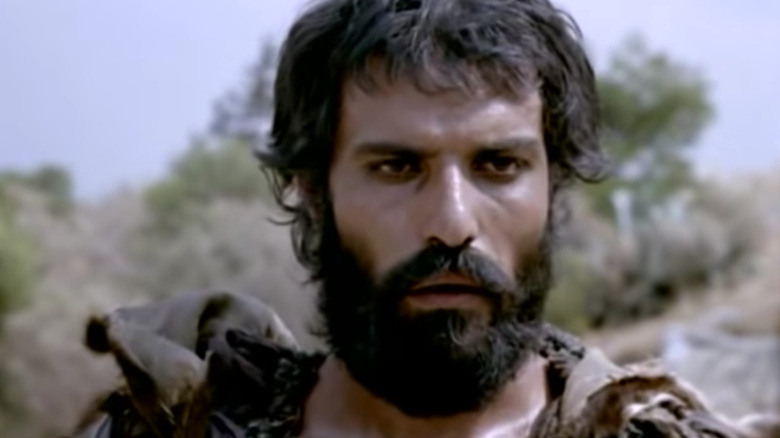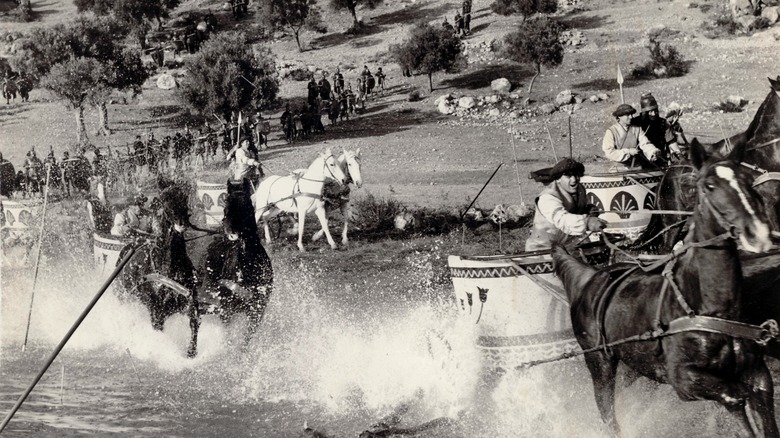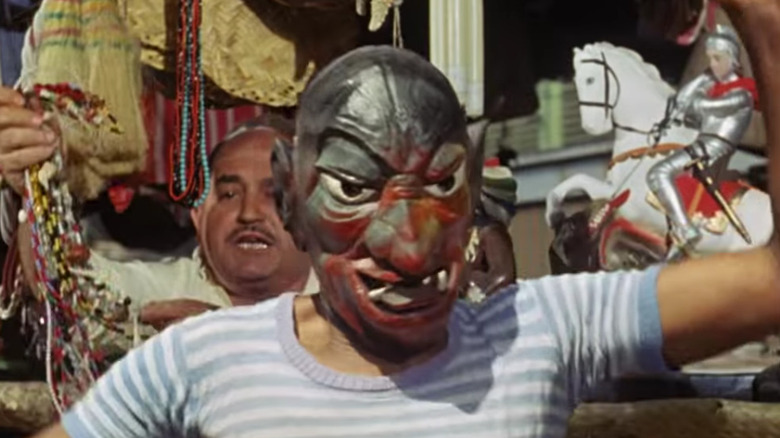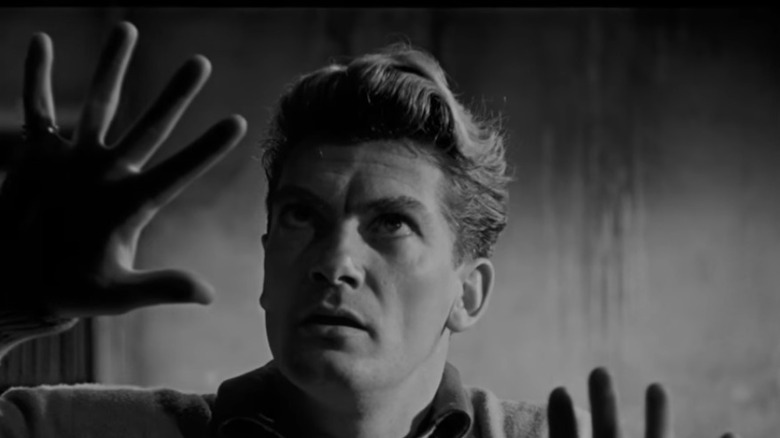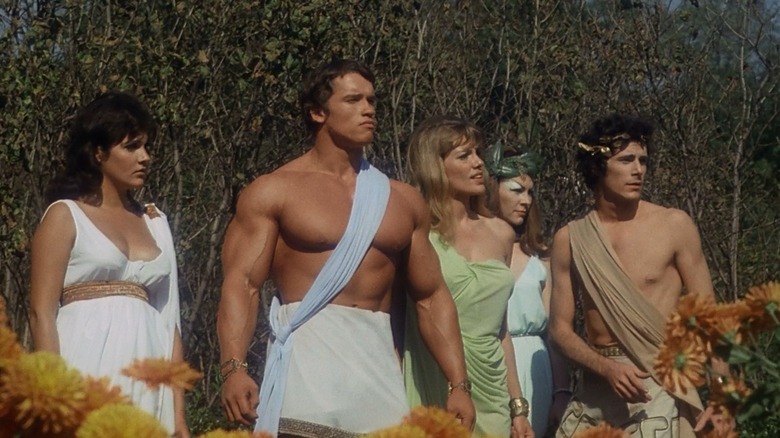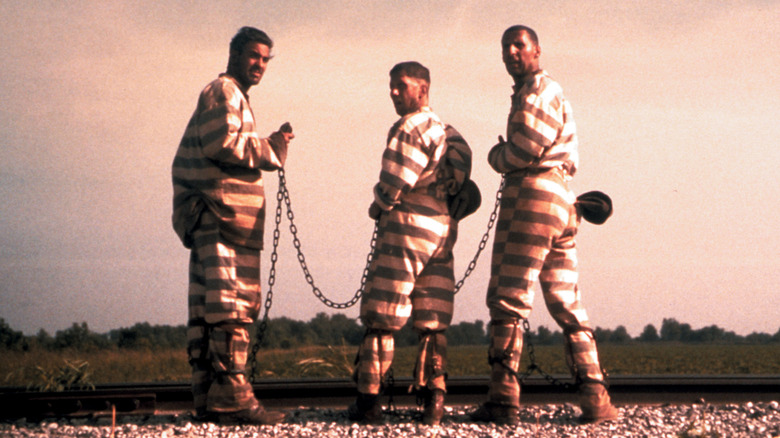20 Movies About Greek Mythology For History Lovers
When not busy sitting around spouting philosophy in the fierce Mediterranean sun or tweaking the concept of democracy for future generations, the ancient Greeks liked nothing more than a damn good yarn. In an age before the internet, smartphones, Kindles, game consoles, TV, and movies, a soul could get easily bored and a tad twitchy on a dreary midweek evening. Naturally, an engaging tale and the telling of it was just the tonic. The ancient Greeks were storytellers par excellence and their tales of gods, goddesses, supernatural beings, dastardly deeds, and heroic adventures were so good they took on mythical proportions. Sagas of dysfunctional divinities sticking their noses into the affairs of mere mortals soon became all the rage in the ancient world.
Like an infinite soap opera, the Greek myths have endured because who cannot relate to epic sagas of flawed heroes, egotistical gods, charismatic villains, cursed beasts, and wise immortals who are all too human? When Perseus slew the Medusa, when Pandora opened the box, when Narcissus fell in love with his reflection, or when Atlas shouldered the weight of the world, it struck a chord that echoed down through the centuries and eventually made its way onto the big screen. Greek mythology bestows order upon the chaos of the natural world and the affairs of man and nature. It also makes for some fine-as-wine movies. Here are 20 of the best that reinterpret and retell the myths of ages for a new audience, guaranteed to tickle the tastes of history lovers everywhere.
Jason and the Argonauts
As the granddaddy of Greek mythology movies, "Jason and the Argonauts" has aged well and still packs a mighty punch. Although filmed in 1963, director Don Chaffey's classic film about a young man named Jason (Todd Armstrong ) and some of Greece's toughest brawlers embarking on a perilous voyage to find the fabled Golden Fleece was ahead of its time in the special effects department. The seven-headed Hydra, the skeleton army, the harpies, the talking boat, the helpful sea giant, and, best of all, the vengeful statue of Talos coming to life are worth the price of admission alone. Hats off to stop-motion animator Ray Harryhausen for the special effects in the pre-CGI age.
"Jason and the Argonauts" has betrayal, vengeance, heroism, and villainy, but it also has Zeus and Hera. Slightly unhinged, psychopathic gods and goddesses sitting bored and idle on Mount Olympus while playing with human beings like they were quite literally pieces on a chessboard is what Greek mythology is all about. The film was a staple of Christmas television for many a moon and haunted many an impressionable child. Almost 60 years on, "Jason and the Argonauts" still manages to captivate and entertain with that timelessly elusive and poetical, whimsical charm that is inherent to Greek mythology.
Troy
At a spritely 39 years of age, Brad Pitt got himself in awesome physical shape to play Achilles in the 2004 ode to love, betrayal, and extreme acts of violence and valor that is director Wolfgang Petersen's "Troy." Based loosely on Homer's epic poem The Iliad, the film takes a few liberties with timelines, plot, and characterization, but it ties so many elements of Greek myth into a satisfying whole that you can forgive it almost anything. It brings the Trojan Horse and Achilles' heel myths to life in grandiose fashion, plus you'll understand why it's always a mistake to fall in love with Helen of Troy, who in Greek mythology is believed to be the daughter of Zeus and Leda.
Yet it's the grandstanding Achilles who steals the show. He was hailed as the most formidable and fierce of all Greek warriors and in "Troy" he definitely pulls no punches. Arriving on the scene with his Myrmidons, Achilles takes the fighting to a different level and his way with a sword is evenly matched by his way with a threat. Prior to slaying Hector (Eric Bana) and dragging away his corpse, he snarls at the clearly anxious Trojan, "You won't have eyes tonight. You won't have ears or a tongue. You'll wander the underworld blind, deaf and dumb, and all the dead will know: This is Hector, the fool who thought he killed Achilles." It's not really the sort of thing you want to hear from one of history's greatest warriors when they're holding a sword and their blood is up.
300
If there's one key takeaway from watching Zack Snyder's "300," it's that under no circumstances should you get on the wrong side of a Spartan. Renowned for its warriors, Sparta was a city-state of Athens that was full of fighting types who were always up for a rumble, no matter the odds. Based on Frank Miller's comic book of the same name, to which the film stays remarkably true, the 2006 movie is based on the Battle of Thermopylae that occurred during the year 480 BC. In the film, King Leonidas (played with savage glee by Gerald Butler) is so disgusted by King Xerxes' offer of complete and utter subjugation of Sparta to Persia that he can barely give vent to his concerns. So he doesn't. What he does do is kick Xerxes' emissary down a well, scream "Sparta," and lead 300 of his bravest men to face down a horde of tyrants who would enslave them.
It's the stuff legends are made of and although it's not historically accurate, it superbly captures in mythic terms the honor, integrity, and determination of the underdog. Of course, the Spartans did not stand against the Persians alone, and there were no elephants. Nevertheless, they were fighting vastly superior odds. Additionally, Leonidas was around 60 years old when he was slain and he never met Xerxes for a dramatic "my sword is bigger than yours"-style showdown. Yet by basing a story on Greek history and incorporating mythical elements, Hollywood proved poignantly how it can create myths of its own to compete with anything out of Ancient Greece.
300: Rise of an Empire
One of the most intriguing aspects of "300" was the character of King Xerxes. The flamboyant, make-up-wearing, bling-loving, buffed-up, and bald-headed giant prone to hysterics and wanton acts of violence was definitely an enigma. Was he a god or just an emotional fantasist whose delusions of grandeur had been indulged by an overly-supportive mother? Set just before, during, and after events in the original film, and based in part on the Battle of Artemisium and Battle of Salamis, "300: Rise of an Empire" works well as Xerxes' origin story but fails on all other fronts. After learning of the death of his father King Darius at the hands of the Greeks, Xerxes vows vengeance and finds a cave full of an otherworldly liquid he can take a quick bath in. The mystical bubbles turn him into an eight-foot giant god-king with a peculiar voice who sets out to dominate the world.
It's at this point that director Noam Murro's film gets a bit patchy. Xerxes' chief foe is General Themistocles of Athens, who killed Xerxes' father at the Battle of Marathon, but Themistocles (Sullivan Stapleton) lacks the charisma, presence and wild-eyed intensity of Leonidas. Sadly, the audience is bored into an almost humorless indifference concerning the fate of an individual who is fighting for a free Greece against the forces of supernatural fascism. The film is also top-heavy with carnage and lacks the emotional impact of its predecessor. Yet Xerxes continues to shine like a born pantomime villain, while Eva Green sparkles as his equally wicked naval commander Artemisia.
Immortals
In Greek mythology, Theseus is most renowned for outwitting and slaying the half-man, half-bull hybrid that is the Minotaur. However, that's just the tip of the iceberg when it comes to the legends that surround this hero of the ancient world. The founder of Athens and son of Poseidon is a heavy-hitter in the world of myth and director Tarsem Singh's 2011 film riffs on all of them. Starring Henry Cavill in the lead role as the mortal handpicked by sky god Zeus (Luke Evans) to battle evil and bring balance to the world, Theseus has a lot on his plate from the get-go but he's more than up for it.
"Immortals" is a visual rollercoaster ride dripping with as much mythology as you can stomach. If you want Titans, gods, and big players from the golden age, you've got them. From Poseidon (Kellan Lutz), Apollo (Corey Sevier), and Ares (Daniel Sharman) to Athena (Isabel Lucas), Heracles (Steve Byers), and Helios (Peter Stabbings), nearly all the A-listers from antiquity are here and fighting for screen time. "Immortals" looks so good you could almost eat it. Scene after scene is lavishly shot and sprinkled generously with CGI to transport the audience back to a time when gods walked amongst us and wouldn't leave us alone. But it also tries to cram so much myth into its 110 minutes that it often lacks a sense of coherency, leaving the viewer's mind to wander blankly amidst a spectacular show with little substance.
Wonder Woman
She may be a superhero, but Wonder Woman was also a member of a race of warrior women that had their roots in Greek mythology. This aspect of Diana Prince's origin story is explored to great effect in director Patty Jenkins's 2017 film "Wonder Woman." Although it brings a Christian interpretation to various elements of ancient myth and streamlines certain narratives for the sake of convenience, the tale of Ares the God of War corrupting the hearts of men is a compelling and timeless one. More importantly, it introduces the audience to the Amazons and gives Diana of Themyscira (Gal Gadot) a universal significance. She's an eternal warrior from a race of fighting females, battling for the perseverance of humanity in the face of macho gods acting like bloodthirsty idiots.
By taking a sprinkle of Greek myth, a dash of the First World War, and a whole heaping of comic book culture, "Wonder Woman" is a potent brew that still stands as one of the DC Extended Universe's finest hours. The daughter of Queen Hippolyta is a woman on a mission to use her own unique, inherent fighting skills to prevent further violence. Yet Wonder Woman's ferocity in a fight is equaled by her compassion and a fitting tribute to the real Amazons of antiquity. When you take one look at Wonder Woman in a rage, you're left with no doubt why Greek heroes such as Achilles, Theseus, and Hercules had to prove their worth in combat by fighting an Amazon warrior queen.
Clash of the Titans
The Titans are a big deal in Greek mythology. They came before the Olympians and were the offspring of Uranus (Heaven) and Gaea (Earth). Titans such as Cronus, Themis, Oceanus, Rhea, and Theia were jumping in and out of each other's beds and plotting to kill one another when the likes of Zeus and Dionysus were just a wink in an old god's eye. In 1981 there was a movie about them clashing and it was quite spectacular. In grand Greek myth tradition, "Clash of the Titans" is all about the gods meddling with the affairs of man and falling out with one another. The divine beings of this movie aren't all that divine. They're pig-headed, craven, petty-minded, and abysmally arrogant. It's just how they roll.
Laurence Olivier's Zeus in particular is hugely memorable as a slightly camp and petulant sociopath with a penchant for poetry. Yet all the cast appear to be having a whale of a time, hamming it up to great effect in an over-the-top and extremely dramatic manner that appears to do divine justice to the gods of old. "Clash of the Titans" is of course aided and abetted greatly by the special effects of "Jason and the Argonauts" maestro Ray Harryhausen. Pegasus, the Kraken, and of course, Medusa live long in the memory with their haunting, otherworldly but strangely larger-than-life presence. In 2010 there was a remake of director Desmond Davis's 1981 classic. Yet the reboot failed: The performances were flat, and no amount of special effects could compensate for its lack of charm.
Wrath of the Titans
Perhaps unhappy at their reception in director Louis Leterrier's 2010 version of "Clash of the Titans," the Titans weren't just clashing in 2012 but were angry as well. With "Wrath of the Titans," audiences finally hoped they would get the sort of film the old gods and goddesses deserved. Set a decade after the events of the previous film, director Jonathan Liebesman's bite at the Greek myth apple fails to hit the sweet spot continually but does have some memorable moments for fans of Greek mythology. The special effects are bang on the buck and it's always a joy to see creatures of myth brought to life just to battle it out on the big screen.
The film's basic concept of the gods losing control of the caged Titans due to humanity's growing lack of belief and prayers is also an intriguing one. Perseus (Sam Worthington) is once again summoned, but this time to rescue his dad Zeus and form a father-and-son team-up that will smash the Titans to kingdom come. In complete contrast to Laurence Olivier's Zeus in "Clash of the Titans," Liam Neeson is a lot less hammy and a lot more stoic, failing magnificently to engage the audience. The film is less about Greek myth as a meaningful narrative but more like a who's who in the world of gods and goddesses. Nevertheless, for fans of Greek mythology, such blockbusters are always worth a watch, if only for what the Germans call the "Sturm und Drang."
Hercules
If there was one actor destined to play a Greek hero famed for his strength and physique, it's Dwayne Johnson. In 2014 the famously bald actor donned the wig of a warrior and burst into action in all his muscle-bound glory in Brett Ratner's testosterone-fueled "Hercules." Based on Steve Moore's graphic novel, the part of a no-nonsense alpha male who likes to tear it up suited "The Rock" to perfection. He's in his element as he repeatedly shouts "I am Hercules!" before battling lions and pulling down trees. Yet this Hercules is no unthinking lump of brawn who cruises through life like it was an endless sea of carnage. This Hercules is haunted by the death of his wife and children, who he killed after being rendered mad by the goddess Hera.
To compound his misery he is also plagued by visions of the Greek hound of hell, Cerberus. It's safe to say that the space between Hercules's ears isn't the most hospitable or nicest place to be. To fuel his near-permanent state of simmering rage further, Hercules's status as the son of Zeus is questioned, as is the authenticity of his legendary 12 tasks. Yet the slings and arrows of outrageous fortune are little more than a Twitter pile-on to a Greek hero, and Hercules pulls through to secure his iconic status. Along the way, he rocks a loincloth like a real player as he demonstrates inhuman strength and the sort of prowess in combat that would make a boxer blush.
Alexander
The life of Alexander of Macedonia often reads like a myth. Tutored by Aristotle, the young Greek was taming wild stallions by the time he was 12. Four years later he was leading men into battle and by the age of 20, he was king. Alexander's reputation as a fearless and brilliantly strategic military commander would see him build one of history's largest empires by the time he turned 30 and he did it all without losing a battle. It's no wonder history would regard him as Alexander the Great and Oliver Stone would choose to make a film about him in 2004.
Although often believed to be the son of Zeus, Alexander was a real person and much of what takes place in Stone's film is based on historical fact. However, there are elements to the film that make it seem like a Greek myth as opposed to a run-of-the-mill historic drama. Played by Colin Farrell, this Alexander has a strange Irish lilt to his voice, but as the film is all about subjective interpretation and the building of a myth, all is forgiven. The film is not one of Stone's best and can be a bit plodding at times, albeit in a very poetic manner. Yet it gives a real taste of a man who achieved so much before his death at the age of 32 — a fitting tribute to an individual who existed in history but has since attained the status of myth.
The Percy Jackson films
What would you do if you were a young lad who one day discovered he was the son of Greek sea god Poseidon? Would you turn your back on your Greek heritage and disappear into the world of online gaming, or would you embrace your Olympian blood and throw yourself into a series of epic adventures? Percy Jackson chose the latter option and to be fair, after being accused of stealing Zeus's fabled lightning bolt he didn't have many options. Yet it's good that he did because the movies, "Percy Jackson and the Olympians: The Lighting Thief" (2010) and "Percy Jackson: Sea of Monsters" (2013), may be a bit threadbare at times but serve as a nice launchpad for kids into the weird and wonderful world of Greek mythology.
Based on the books by Rick Riordan, the first movie is about a dyslexic who discovers he's a demi-god. After being set upon by a Fury posing as an English teacher and battling with a Minotaur, Jackson (Logan Lerman) is visited by a representative of Hades who sets him on a long and winding path rich in Greek mythology. In the second film, Jackson follows on the heels of Jason in search of the Golden Fleece, as he embarks upon an odyssey across the sea of monsters. The films are a little too influenced by the "Harry Potter" franchise, but they are action-packed enough to keep young viewers entertained and anything that breathes a little new life into ancient myths is to be applauded.
Minotaur
The Minotaur is one of the best-known Greek myths, and also one of the most disturbing. The monster with the body of a man and the head of a bull who lives in an underground labyrinth, brooding about his lot and fermenting a deep resentment of other life forms, is quite unsettling and lends itself perfectly to the horror genre. This is probably why in 2006, director Jonathan English had a stab at making a horror flick about the ill-conceived offspring of Pasiphae and the Cretan Bull. Although it deviates from traditional Greek myth, the tale of eight young people being sacrificed to the Minotaur in his underground lair every year has all the darkness, despair, and symbolism of the ancient tales.
Tom Hardy takes on the traditional role of Theseus as he attempts to outwit the predatory beast and lead his friends to freedom. Along the way, the sight and sound of the bestial Minotaur grunting and charging at people, before impaling them on its horns, captures the animalistic savagery at the heart of this particular Greek myth. The Minotaur in this film was born out of bestiality and a woman's desire to create a living god, and the audience gets a true taste of how such an egotistical ambition backfires spectacularly. "Minotaur" is not a great film, but it does remind the viewer that when the ancient Greeks talked about the labyrinth and the Minotaur, they were deploying a nuanced metaphor for the human condition.
Medea
If you want to see the "Jason and the Argonauts" myth from an altogether different perspective, then Pier Paolo Pasolini's renowned 1969 adaptation is the movie for you. "Medea" is both the name of the film and the sorceress who gives Jason a little bit of magic to help him on his quest for the Golden Fleece. Played by legendary soprano Maria Callas, Medea is promised Jason's hand in marriage in return for her help. Yet when the big man returns to his homeland as a hero, the mass public adulation eventually appears to go to his head. After siring her two sons, he ditches the sorceress like a pair of old boots and jumps into bed with a Corinthian princess. Big mistake: Hell hath no fury like a woman scorned, and when that woman is a little bit witchy you've just upped the ante.
It's a shame that this was Maria Callas's only film role, because she commands the screen with a bewitching performance of mythological proportions. The film is a product of its time and very much an arthouse feature, yet by staying largely true to the famous play by Euripides, "Medea" offers a different slant to Hollywood's version of the myth. Through her dark arts, Medea bewitches Jason's new bride into taking her own life, then she kills her and Jason's sons before setting fire to the family home and snarling, "It is useless! Nothing is possible anymore!" "Medea" does capture a little of the bleak existentialism at the heart of many a Greek myth.
Ulysses
Before he was an overweight, balding, yellow cartoon, Homer was better known as an author and epic poet from ancient Greece who wrote "The Odyssey." It is this saga that Mario Camerini's 1954 film is based upon. Featuring Kirk Douglas as Ulysses, the movie finds our hero quite literally washed up on a strange shore with no memory of his heroics at the siege of Troy. That all changes in the space of one hot minute when he has a flashback that reminds him of his eternal greatness. Realizing he has been kept from his homeland and memories for years because he got on the wrong side of Neptune, Ulysses relives his adventures when striving to return home after 10 long years at war.
"Ulysses" is a film that has largely slipped under the radar in the canon of Greek mythology adaptations, which is unfortunate because Douglas in his usual fierce and frank way delivers a memorable performance. For some reason, the film substitutes the Greek sea god Poseidon for its Roman variant Neptune and does the same with Odysseus (Ulysses). Yet those small gripes aside, the film is worth a watch just to see the Cyclops Polyphemus. The 35-foot-tall mechanical giant doesn't quite live up to the special effects standard "Jason and the Argonauts" set nine years later, but for the era, it's a decent effort. The film is also worth persevering with for the ending, which stays true to Homer's bloody climax.
Iphigenia
Regardless of which parts are fiction and which are fact, the battle for Troy is one of the most famous military engagements in history. Yet it wasn't all about Helen, Achilles, and a wooden horse. There were many significant stories happening on the outskirts of the battle, one of which involved King Agamemnon's daughter, Iphigenia. In director Michael Cacoyannis's 1977 epic reflection on sacrifice, love, loss, fate and tragedy, King Agamemnon (Kostas Kazakos) kills a deer and upsets a goddess. No big thing, you might think — he is, after all, a king. But the slain deer was a sacred one that belonged to Artemis and so this royal blunder has consequences. As Agamemnon's ships are waiting on a sea breeze to take them to Troy, Artemis decides the conditions will remain unfavorable until the king atones for what he's done — except that atonement in this case involves the sacrifice of his first-born daughter Iphigenia (Tatiana Papamoschou).
It's a bleak scenario but that's Greek mythology for you. Skilled moviemaker Cacoyannis does a sublime job of bringing it to life. "Iphigenia" marks the third installment in Cacoyannis's acclaimed trilogy of films based on Greek mythology. "Electra" (1962) and "The Trojan Women" (1971) also deserve an honorable mention, but it's with "Iphigenia," nominated for the Best Foreign Language Film Oscar, that he really hits his stride. The performances are spot-on, the pacing fits the material to perfection and the film embodies the human cost and emotional devastation inherent in Greek mythology.
The 300 Spartans
Before Zack Snyder hurled the legend of the battle-hardened Spartans into the public's consciousness like a well-placed spear, there was a 1962 movie which had already documented the exploits of King Leonidas and his steadfast 300. Directed by Rudolph Mate, "The 300 Spartans" is worth 114 minutes of your time just to compare and contrast with the 2006 version. The bones of the story are of course identical. King Xerxes is on the rampage and wants to write his philosophy of "one world ruled by one master" in blood and conquest. Sparta has other ideas, and 300 of the best and bravest take the fight to the hordes of Persia.
The original has a lot less spectacle and violence than Snyder's version but a little more historical accuracy. Both the Spartans and Persians wear outfits that are far more historically on-the-ball than in Snyder's film. Both films also use famous Spartan comments — as recorded by the Greek historian Herodotus – for much of the dialogue, which gives them the kind of authenticity CGI just cannot buy. When Leonidas replies to a Persian's threat that their "arrows will blot out the sun" with the classic "Then we will fight in the shade," you're hearing a conversation straight from antiquity. Yet the greatest legacy of "The 300 Spartans" may be its influence on writer Frank Miller. He was six when he first saw "The 300 Spartans" and credits it with inspiring him to write the graphic novel on which "300" is based. What goes around comes around!
Black Orpheus
Before Romeo and Juliet or Tommy and Pam, there was Orpheus and Eurydice. The doomed romance of a god who travels in vain to Hades to rescue his mortal lover has echoed down the ages and continues to hit a nerve with everyone who hears it. Released in 1959, Marcel Camus's "Black Orpheus" is one of the most intriguing and enchanting films based on the myth. It was awarded the Palme d'Or at Cannes and also picked up a Golden Globe and Oscar for Best Foreign Language Film. In his memoir "Dreams From My Father," Barack Obama recalls that his mother described "Black Orpheus" as "the most beautiful thing I have seen." The former U.S. President would later disagree with her, but plenty of others didn't.
Set during the Rio Carnival and featuring a mostly Black and Brazilian cast, the film has an infectious energy and great soundtrack. Based on the play by Vinicius de Moraes, it revolves around the relationship between Orfeu (Breno Mello), and Eurydice (Marpessa Dawn). Along the way, they are pursued by a strange man dressed as a skeleton who is in fact the Grim Reaper. Fate is inevitable and death eventually catches up with Eurydice. In a nod to the myth, Orfeu descends a spiral staircase at the Office of Missing Persons, meets a dog called Cerberus, and starts singing for love lost. It doesn't end well, but then not many Greek myths do. However, it's a highly memorable and captivating take on a relationship that has haunted the world.
Orpheus
Alongside "The Blood of a Poet" (1930), and "The Testament of Orpheus" (1960), "Orpheus" (1950) forms Jean Cocteau's "Orphic Trilogy." Based on the myth of Orpheus and Eurydice, "Orpheus" is widely considered as Jean Cocteau's most linear film. Anyone familiar with the director's work will realize this still makes it as far removed from modern blockbuster fare as possible. Yet Cocteau's hypnotic, dreamlike filmmaking lends itself superbly to the elusive and surreal qualities of Greek myth. Roger Ebert wrote, "Seeing 'Orpheus' today is like glimpsing a cinematic realm that has passed completely from the scene." Ebert adds that with Cocteau at the helm, the myth becomes even more complex and explores the dangerous disassociation from humanity artists can suffer for their art.
The film updates the ancient Greek tale and sets it in modern Paris, yet in typical Cocteau fashion, the film is open to interpretation. Is it all in the imagination of Orpheus himself? Or is he an evil poet who kills what he loves simply so he can sing about it? There is even a suggestion that Orpehus's true love is death itself and the glory of becoming an immortal poet. Is the film a reflection on reincarnation, or perhaps it is little more than a dream within a dream? In the final analysis neither the question nor answers matter, but just the visual spectacle that worms its way into the viewer's subconscious like liquid mercury and sets fire to the imagination.
Hercules in New York
Take a character from Greek myth, insert him into a modern environment that is unfamiliar and strange, script a few formulaic gags, then sit back and watch the sparks fly. On paper, it sounds like a grand affair, but on the screen not so much. Directed by Arthur Allan Seidelman, "Hercules in New York" asks a big question — how would a legend from antiquity adapt to modern life? Haven't we all wondered such a thing in a rare moment of wild, intoxicated abandon? In this 1970 movie, Arnold Schwarzenegger plays Hercules much like a duck would play a swan. To Schwarzenegger's credit, it was his acting debut, and making the transition from pumper of iron to thespian was going to take time to perfect.
Yet "Hercules in New York" is not all bad, and some of it is distinctively average. Schwarzenegger's performance may be on the far side of terrible, but his physique is strictly Olympian. The film also proves how Schwarzenegger has always had the instinctive knack of filling a scene through sheer force of presence. As you can imagine, an ancient Greek in the Big Apple would look and feel every inch the proverbial fish out of water, and Schwarzenegger encapsulates this perfectly in every scene with a strange hybrid of supreme confidence and awkward acting. For all its faults, the film has a curious charm and childlike innocence — almost as if the gods themselves were playing a game with us.
O Brother, Where Art Thou?
At first glance, you might think the Coen brothers' "Oh Brother, Where Art Thou?" is just a humorous, entertaining film about three convicts on the lam during the Great Depression in search of lost loot, but think again. Within that wisecracking tomfoolery and those barnstorming folk tunes, there's a journey to be found and that journey, as the opening credits tell us, is based on Homer's "Odyssey." As Ulysses (George Clooney), Pete (John Turturro), and Delmar (Tim Blake Nelson), begin their quest in search of the glittering prize, a blind man on the railway sounds an ominous warning that the fortune they will find will not be the one they seek. Along the way the three adventurers encounter a guitar player who sold his soul to the devil, sirens washing their clothes in a river who later drug them with corn whiskey, and a host of other characters straight out of the pages of Greek myth.
The bible salesman and Ku Klux Klan member Daniel "Big Dan" Teague ( John Goodman) is the cyclops Polyphemus, Ulysses's wife Penny (Holly Hunter) is Penelope, and the ruthless Sherrif Cooley (Daniel von Bargen) is Poseidon. It's a refreshing take on a tale as old as the hills. By incorporating the spirit of "The Odyssey" into a chapter of American history that is already rich with its own burgeoning mythology, the film proves poignantly that the old myths never die, they simply adapt and endure.
